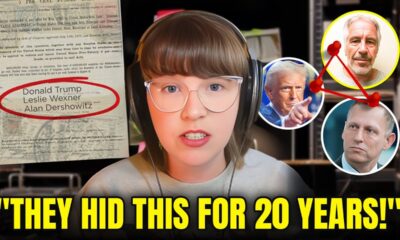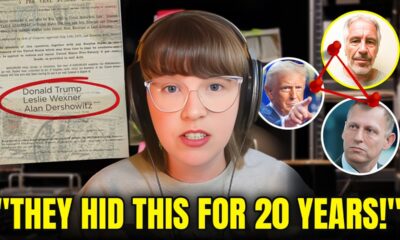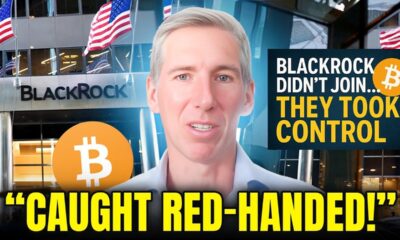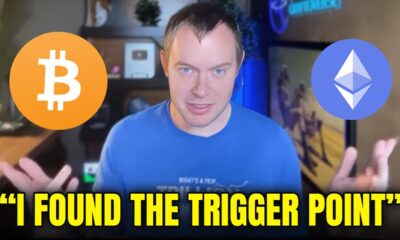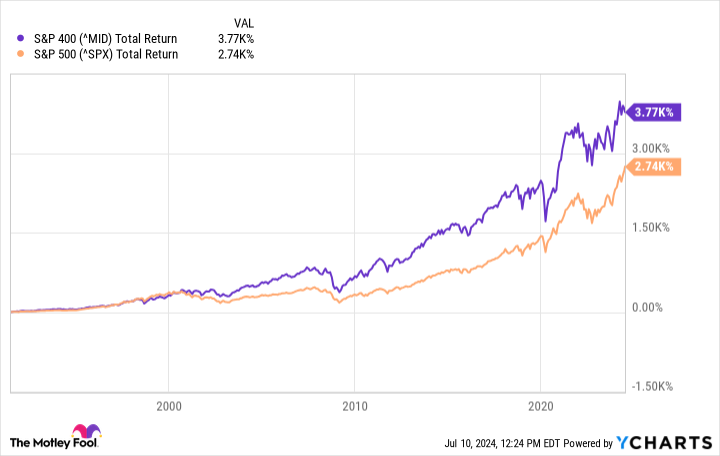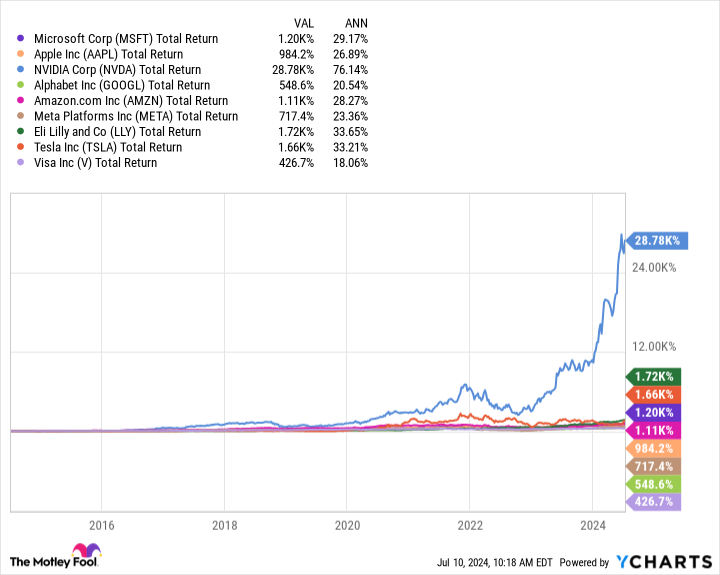ETFs
TCW to Change Listing Exchange of ETFs to NYSE
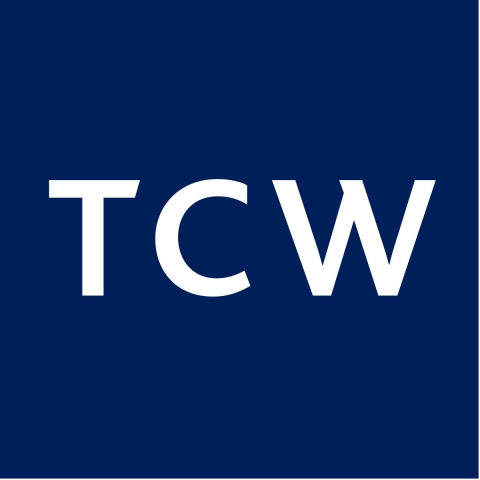
LOS ANGELES, May 17, 2024–(BUSINESS WIRE)–The TCW Group, a leading global asset management firm, today announced that, effective May 30, 2024, the listing exchange for shares of each of the following series (each, an “ETF” and, collectively, the “ETFs”) of TCW ETF Trust (the “Trust”) will be changed from each ETF’s current listing exchange, as indicated below, to the floor of the New York Stock Exchange LLC (“NYSE”):
|
ETF |
Ticker |
Current Exchange |
|
TCW Transform 500 ETF |
VOTE |
Cboe BZX Exchange, Inc. |
|
TCW Transform Systems ETF |
NETZ |
Cboe BZX Exchange, Inc. |
|
TCW Transform Supply Chain ETF |
SUPP |
Cboe BZX Exchange, Inc. |
|
TCW Artificial Intelligence ETF |
AIFD |
NYSE Arca, Inc. |
|
TCW Compounders ETF |
GRW |
NYSE Arca, Inc. |
TCW offers the TCW Transform 500 ETF, which holds stocks of the 500 largest U.S. publicly traded companies. By actively voting and directly engaging such companies on material issues, VOTE seeks to drive long-term value. The other ETFs are actively managed and aim to invest in companies focused on capturing the value presented by rapidly developing cross-sector thematic opportunities such as the reshoring of supply chains, the energy transition, or artificial intelligence, as applicable.
TCW is committed to strengthening the execution experience for its clients and investors when trading in shares of each of the ETFs. By listing on the NYSE, the ETFs will have access to best-in-class trading technology and human oversight. Additionally, listing on the NYSE floor has the potential to enhance the ETFs’ market quality as marked by tighter spreads, larger quoted size trades and additional liquidity.
The ETFs will begin trading on the NYSE as of the open of trading on May 30, 2024.
Shareholders of each of the ETFs are not anticipated to be impacted or need to take any action in connection with the change in listing exchange. The ticker of each ETF will remain the same.
About The TCW Group
TCW is a leading global asset management firm with a broad range of products across fixed income, alternative investments, equities, and emerging markets. With over half a century of investment experience, TCW today manages approximately $200 billion in client assets. Through its ETF suite, MetWest Funds and TCW Funds, TCW manages one of the largest fund complexes in the U.S. TCW’s clients include many of the world’s largest corporate and public pension plans, financial institutions, endowments and foundations, as well as financial advisors and high net worth individuals. For more information, please visit www.tcw.com.
Story continues
Important Information
Before investing you should carefully consider the investment objectives, risks, charges and expenses of each ETF (each referred to herein as a “Fund”). This and other information is in a Fund’s prospectus, a copy of which may be obtained from etf.tcw.com. Please read the prospectus carefully before you invest.
Shares of any exchange=traded fund are bought and sold at market price (not net asset value (“NAV”), may trade at a discount or premium to NAV and are not individually redeemed from the Funds. Brokerage commissions will reduce returns. NAVs are calculated using prices as of 4:00 PM Eastern Time. The closing price is the mid-point between the bid and ask price as of the close of exchange. Closing price returns do not represent the returns you would receive if you traded shares at other times.
The Funds are advised by TCW Investment Management Company LLC, a wholly-owned subsidiary of TCW, and distributed by Foreside Financial Services, LLC.
Effective October 13, 2023, TCW acquired Engine No. 1’s ETF business and the Transform Funds’ adviser became TCW Investment Management Company LLC (the “Adviser”). Prior to that date, the Transform Funds’ adviser was Fund Management at Engine No. 1 LLC.
TCW Artificial Intelligence ETF (AIFD) seeks to invest in the companies that the Adviser believes will benefit from the artificial intelligence, or “AI,” transformation. The Fund’s investment objective is long-term growth of capital. The Fund is actively managed and may be susceptible to an increased risk of loss, including losses due to adverse events that affect the Fund’s investments more than the market as a whole, to the extent that the Fund’s investments are concentrated in the securities of a particular issuer or issuers, country, group of countries, region, market, industry, group of industries, sector or asset class. The Fund may purchase and write put and call options on futures contracts that are traded on an exchange as a hedge against changes in value of its portfolio securities, or in anticipation of the purchase of securities, and may enter into closing transactions with respect to such options to terminate existing positions. There is no guarantee that such closing transactions can be effected.
TCW Artificial Intelligence ETF (AIFD) is subject to the following risks: Equity securities are subject to changes in value, and their values may be more volatile than those of other asset classes. The net asset value of the Fund will fluctuate based on changes in the value of the equity securities held by the Fund. Funds investing in mid and small cap companies involve special risks including higher volatility and lower liquidity. The Fund’s investments in companies involved in, or exposed to, artificial intelligence-related businesses may be negatively impacted because of, among other things, limited product lines, markets, financial resources and/or personnel these companies may have, intense competition and potentially rapid product obsolescence these companies may face, loss or impairment of intellectual property rights, and the inability to successfully develop products or services even after spending significant amount of resources. Undervalued stocks may not realize their perceived value for extended periods of time or may never realize their perceived value. Value stocks may respond differently to market and other developments than other types of stocks. The Fund will concentrate its investments in various technology industries. At times of such impact, the value of the Fund may fluctuate more widely than it would for a fund that invests more broadly across varying sectors. The Fund may be more susceptible to any single economic, political, or regulatory event than a diversified fund because a higher percentage of the Fund’s assets may be invested in the securities of a limited number of issuers. Investments in emerging market countries may be subject to greater risks than investments in developed countries. Active ownership can take any of several forms, including proxy battles, publicity campaigns, and negotiations with management. In the event that an affiliate of the Fund or its investment adviser is engaged in an activist campaign with respect to a portfolio company, the Fund may be foreclosed from taking certain actions with respect to that company as a result of prohibitions on engaging in joint transactions with affiliates under Section 17(d) of the 1940 Act or as a result of other regulatory or fiduciary concerns. The Fund is considered to be non-diversified, which means that it may invest more of its assets in, and be more exposed to the risks of, the securities of a single issuer or a smaller number of issuers, which may increase the Fund’s volatility.
TCW Compounders ETF (GRW) seeks to invest in the companies that the Adviser believes will benefit from transformation as a result of technological innovations, market dynamics, and/or changes in client preferences. The Fund’s investment objective is long-term growth of capital. The Fund is actively managed and may be susceptible to an increased risk of loss, including losses due to adverse events that affect the Fund’s investments more than the market as a whole, to the extent that the Fund’s investments are concentrated in the securities of a particular issuer or issuers, country, group of countries, region, market, industry, group of industries, sector or asset class. The Fund’s may purchase and write put and call options on futures contracts that are traded on an exchange as a hedge against changes in value of its portfolio securities, or in anticipation of the purchase of securities, and may enter into closing transactions with respect to such options to terminate existing positions. There is no guarantee that such closing transactions can be effected.
TCW Compounders (GRW) is subject to the following risks: Equity securities are subject to changes in value, and their values may be more volatile than those of other asset classes. The net asset value of the Fund will fluctuate based on changes in the value of the equity securities held by the Fund. Undervalued stocks may not realize their perceived value for extended periods of time or may never realize their perceived value. Value stocks may respond differently to market and other developments than other types of stocks. The Fund will typically invest a portion of its assets in securities or other financial instruments issued by companies in the financial services sector, including, without limitation, the banking, brokerage and insurance industries. Changes to government regulations, interest rates, or general economic conditions may detrimentally affect the Fund because of the Fund’s investments in the financial services sector. Active ownership can take any of several forms, including proxy battles, publicity campaigns, and negotiations with management. In the event that an affiliate of the Fund or its investment adviser is engaged in an activist campaign with respect to a portfolio company, the Fund may be foreclosed from taking certain actions with respect to that company as a result of prohibitions on engaging in joint transactions with affiliates under Section 17(d) of the Investment Company Act of 1940, as amended (“1940 Act”), or as a result of other regulatory or fiduciary concerns. The Fund is considered to be non-diversified, which means that it may invest more of its assets in, and be more exposed to the risks of, the securities of a single issuer or a smaller number of issuers, which may increase the Fund’s volatility.
TCW Transform Systems ETF (NETZ) is actively managed and may be susceptible to an increased risk of loss, including losses due to adverse events that affect the Fund’s investments more than the market as a whole, to the extent that the Fund’s investments are concentrated in the securities of a particular issuer or issuers, country, group of countries, region, market, industry, group of industries, sector or asset class. Shares are subject to the risks of an investment in a portfolio of equity securities in an industry or group of industries in which the Fund invests. Investments in emerging market countries may be subject to greater risks than investments in developed countries. The Fund may purchase and write put and call options on futures contracts that are traded on an exchange as a hedge against changes in value of its portfolio securities, or in anticipation of the purchase of securities, and may enter into closing transactions with respect to such options to terminate existing positions. There is no guarantee that such closing transactions can be effected.
Transform Systems ETF is a non-diversified management investment company under the 1940 Act. Diversification does not assure a profit or protect against a loss in a declining market. It’s not possible to invest in an index. An outbreak of an infectious respiratory illness, COVID-19, has resulted in significant economic impacts. Other infectious illness outbreaks in the future may result in similar or other impacts.
The Adviser considers environmental and governance risk factors as part of its investment process, particularly in considering the ways in which each company’s externalities, and the management of these factors, could ultimately drive financial performance. The Adviser does not use aggregated environmental or governance ratings or rankings to exclude specific companies or sectors from investment, but instead generally uses its own proprietary analysis of each company’s specific externalities to make better informed decisions. The Adviser generally estimates these externalities using data from the companies themselves, and publicly available data sources (e.g., Bloomberg, Economic Policy Institute, Environmental Protection Agency (EPA), International Council on Clean Transportation (ICCT), Federal Reserve Economic Data, MIT Living Wage Calculator, US Department of Agriculture (USDA), U.S. Bureau of Labor Statistics, U.S. Department of Transportation, U.S. Energy Information Administration).
TCW Transform Supply Chain ETF (SUPP) is subject to the following risks: Supply Chain Risks. Companies supply chains are generally subject to risk such as legislative or regulatory changes; adverse market conditions and/or increased competition; technological developments and changing technology; cyberattacks that may compromise a company’s operations or business; occasional sharp price movements which may result from changes in the economy, fuel prices, labor agreements, exchange rate movements, and insurance costs; pandemics, natural disasters or other crisis; boarder and/or import controls; pent-up /increased demand; mobility restrictions; shortages of product and labor; dependence on intellectual property rights, and potential loss or impairment of those rights; research and development costs; and rapid product obsolescence. Global, regional, or local events, such as changes to trade relations, trade restrictions, and/or military conflict, may materially disrupt or indefinitely impair the operations of these companies. Activism Risk. An activist investor uses an equity stake in a corporation to put public pressure on a company’s management team and board in order to achieve certain objectives such as the increase of shareholder value through changes in corporate policy or financing structure, or reduction of expenses. Non-Diversification Risk. The Fund is considered to be non-diversified, which means that it may invest more of its assets in the securities of a single issuer or a smaller number of issuers than if it were a diversified fund. Limited History of Operations Risk. The Fund is a new fund with no history of operations for investors to evaluate. Emerging Markets Risk Investments in securities and instruments traded in developing or emerging markets, or that provide exposure to such securities or markets, can involve additional risks relating to political, economic, or regulatory conditions not associated with investments in U.S. securities and instruments. Sustainability Investing Strategy Risk. The Adviser considers environmental and governance risk factors as part of its investment process, particularly in considering the ways in which each company’s externalities, and the management of these factors, could ultimately drive financial performance. The Adviser does not use aggregated environmental or governance ratings or rankings to exclude specific companies or sectors from investment, but instead generally uses its own proprietary analysis of each company’s specific externalities to make better informed decisions. The Adviser generally estimates these externalities using data from the companies themselves, and publicly available data sources (e.g., Bloomberg, Economic Policy Institute, Environmental Protection Agency (EPA), International Council on Clean Transportation (ICCT), Federal Reserve Economic Data, MIT Living Wage Calculator, US Department of Agriculture (USDA), U.S. Bureau of Labor Statistics, U.S. Department of Transportation, U.S. Energy Information Administration).
TCW Transform 500 ETF (VOTE) is not actively managed, and the Adviser generally does not attempt to take defensive positions under any market conditions, including declining markets. This Fund may be subject to tracking error, which is defined as the divergence of the Fund’s performance from that of the underlying index. At any given time, the Fund can have exposure to derivative instruments.
TCW Transform 500 ETF is a diversified management investment company under the 1940 Act. Diversification does not assure a profit or protect against a loss in a declining market. It’s not possible to invest in an index. An outbreak of an infectious respiratory illness, COVID-19, has resulted in significant economic impacts. Other infectious illness outbreaks in the future may result in similar or other impacts.
Please see each Fund’s Prospectus for more information on these and other risks.
View source version on businesswire.com: https://www.businesswire.com/news/home/20240517639401/en/
Contacts
Investor Contact:
Tel: 800-386-3829
Media Contact:
Doug Morris
Head of Corporate Marketing and Communications
Tel: 213-244-0509
ETFs
Missed the Bull Market Resumption? 3 ETFs to Help You Build Wealth for Decades
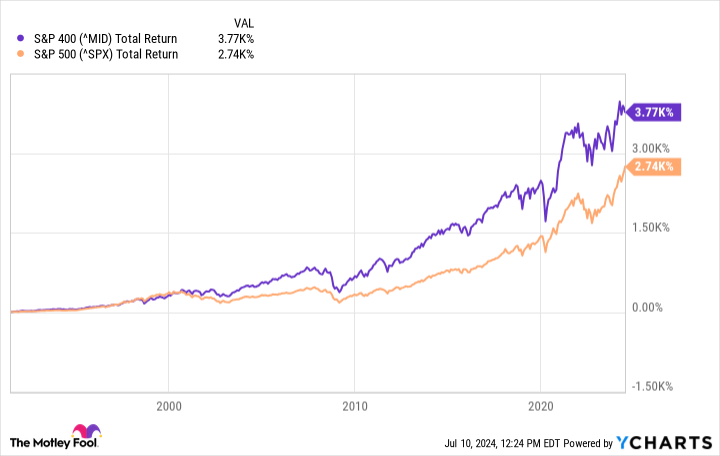
The market’s rebound from the 2022 bear market was not only unexpected. It was also bigger than expected. S&P 500 The stock price is up 60% from the bear market low, despite no clear signs at the time that such a rally was in the works. Chances are you missed at least part of this current rally.
If so, don’t be discouraged: you’re in good company. You’re also far from financially ruined. While you can’t go back and make up for the missed opportunity, for long-term investors, the growth potential is much greater.
If you want to make sure you don’t miss the next big bull run, you might want to tweak your strategy a bit. This time around, you might try buying fewer stocks and focusing more on exchange traded funds (or ETFs), which are often easier to hold when things get tough for the overall market.
With that in mind, here’s a closer look at three very different ETFs to consider buying that could – collectively – complement your portfolio brilliantly.
Let’s start with the basics: dividend growth
Most investors naturally favor growth, choosing growth stocks to achieve that goal. And the strategy usually works. However, most long-term investors may not realize that they can get the same type of net return with boring dividend stocks like the ones held in the portfolio. Vanguard Dividend Appreciation ETF (NYSEMKT: VIG) which reflects the S&P US Dividend Growth Index.
As the name suggests, this Vanguard fund and its underlying index hold stocks that not only pay consistent dividends, but also have a history of consistently increasing dividends. To be included in the S&P US Dividend Growers Index, a company must have increased its dividend every year for at least the past 10 years. In most cases, however, they have been doing so for much longer.
The ETF’s current dividend yield of just under 1.8% isn’t exactly exciting. In fact, it’s so low that investors might wonder how this fund is keeping up with the broader market, let alone growth stocks. What’s being grossly underestimated here is the sheer magnitude of these stocks. dividend growthOver the past 10 years, its dividend per share has nearly doubled, and more than tripled from 15 years ago.
The reason is that solid dividend stocks generally outperform their non-dividend-paying counterparts. Calculations by mutual fund firm Hartford indicate that since 1973, S&P 500 stocks with a long history of dividend growth have averaged a single-digit annual return, compared with a much more modest 4.3% annual gain for non-dividend-paying stocks, and an average annual return of just 7.7% for an equal-weighted version of the S&P 500. The numbers confirm that there’s a lot to be said for reliable, consistent income.
The story continues
Then add capital appreciation through technology
That said, there’s no particular reason why your portfolio can’t also hold something a little more volatile than a dividend-focused holding. If you can stomach the volatility that’s sure to continue, take a stake in the Invesco QQQ Trust (NASDAQ: QQQ).
This Invesco ETF (often called the “cubes” or the triple-Q) is based on the Nasdaq-100 index. Typically, this index consists of 100 of the Nasdaq Composite IndexThe index is one of the largest non-financial indices at any given time. It is updated quarterly, although extreme imbalance situations may result in unplanned rebalancing of the index.
That’s not what makes this fund a must-have for many investors, though. It turns out that most high-growth tech companies choose to list their shares through the Nasdaq Sotck exchange rather than other exchanges like the New York Stock Exchange or the American Stock ExchangeNames like Apple, MicrosoftAnd Nvidia are not only Nasdaq-listed securities. They are also the top holdings of this ETF, with Amazon, Meta-platformsand Google’s parent company AlphabetThese are of course some of the highest-yielding stocks on the market in recent years.
This won’t always be the case. Just as companies like Nvidia and Apple have squeezed other names out of the index to make room for their stocks, these current names could also be replaced by other names (although it will likely be a while before that happens). It’s the proverbial life cycle of the market.
This shift, however, will likely be driven by technology companies that are offering revolutionary products and services. Owning a stake in the Invesco QQQ Trust is a simple, low-cost way to ensure you’re invested in at least most of their stocks at the perfect time.
Don’t forget indexing, but try a different approach
Finally, while Triple-Q and Vanguard Dividend Appreciation funds are smart ways to diversify your portfolio over the long term, the good old indexing strategy still works. In other words, rather than risk underperforming the market by trying to beat it, stick to tracking the long-term performance of a broad stock index.
Most investors will opt for something like the SPDR S&P 500 Exchange Traded Fund (NYSEMKT:SPY), which of course mirrors the large-cap S&P 500 index. And if you already own one, great: stick with it.
If and when you have some spare cash to put to good use, consider starting a mid-cap funds as the iShares Core S&P Mid-Cap ETF (NYSEMKT: IJH) instead. Why? Because you’ll likely get better results with this ETF than you will with large-cap index funds. Over the past 30 years, S&P 400 Mid-Cap Index significantly outperformed the S&P 500.
^MID Chart
The disparate degree of gains actually makes sense. While no one disputes the solid foundations on which most S&P 500 companies are built, they are in many ways victims of their own size: It’s hard to get bigger when you’re already big. This is in contrast to the mid-cap companies that make up the S&P 400 Mid Cap Index. These organizations have moved past their rocky, shaky early years and are just entering their era of high growth. Not all of them will survive this phase, but companies like Advanced microsystems And Super microcomputer Those that survive end up being incredibly rewarding to their patient shareholders.
Should You Invest $1,000 in iShares Trust – iShares Core S&P Mid-Cap ETF Right Now?
Before purchasing shares of iShares Trust – iShares Core S&P Mid-Cap ETF, consider the following:
The Motley Fool Stock Advisor analyst team has just identified what they believe to be the 10 best stocks Investors should buy now…and the iShares Trust – iShares Core S&P Mid-Cap ETF wasn’t one of them. The 10 stocks selected could generate monstrous returns in the years to come.
Consider when Nvidia I made this list on April 15, 2005… if you had $1,000 invested at the time of our recommendation, you would have $791,929!*
Stock Advisor provides investors with an easy-to-follow blueprint for success, including portfolio construction advice, regular analyst updates, and two new stock picks each month. The Stock Advisor service offers more than quadrupled the return of the S&P 500 since 2002*.
*Stock Advisor returns as of July 8, 2024
John Mackey, former CEO of Amazon’s Whole Foods Market, is a member of The Motley Fool’s board of directors. Randi Zuckerberg, former director of market development and spokesperson for Facebook and sister of Meta Platforms CEO Mark Zuckerberg, is a member of The Motley Fool’s board of directors. Suzanne Frey, an executive at Alphabet, is a member of The Motley Fool’s board of directors. James Brumley has positions in Alphabet. The Motley Fool has positions in and recommends Advanced Micro Devices, Alphabet, Amazon, Apple, Meta Platforms, Microsoft, Nvidia, and Vanguard Specialized Funds – Vanguard Dividend Appreciation ETF. The Motley Fool recommends Nasdaq and recommends the following options: long January 2026 $395 calls on Microsoft and short January 2026 $405 calls on Microsoft. The Motley Fool has a position in Advanced Micro Devices, Alphabet, Amazon, Apple, Meta Platforms, Microsoft, Nvidia, and Vanguard Specialized Funds – Vanguard Dividend Appreciation ETF. The Motley Fool recommends Nasdaq and recommends the following options: long January 2026 $395 calls on Microsoft and short January 2026 $405 calls on Microsoft. disclosure policy.
Missed the Bull Market Resumption? 3 ETFs to Help You Build Wealth for Decades was originally published by The Motley Fool
ETFs
This Simple ETF Could Turn $500 a Month Into $1 Million

This large-cap ETF offers investors the potential for above-market returns while minimizing risk.
It’s always inspiring to hear stories of people who invested in a company and made tons of money as the company grew and became successful. While these stories are a testament to the power of investing, they can also be misleading. That’s not because it doesn’t happen often, but because you don’t have to make a big splash on a single company to make a lot of money in the stock market.
Invest regularly in exchange traded funds (AND F) is a great way to build wealth. ETFs allow you to invest in dozens, hundreds, and sometimes thousands of companies in a single investment. For investors looking for an ETF that can help them become millionaires, look no further than the Vanguard Growth ETFs (VUG 0.61%).
A history of outperforming the market
Since its launch in January 2004, this ETF has outperformed the market (based on S&P 500 Back), with an average total return of around 11.6%. The returns are even more impressive when looking back over the past decade, with the ETF posting an average total return of around 15.7%.
Total VUG Performance Level data by YCharts
The ETF’s past success doesn’t mean it will continue on this path, but for the sake of illustration, let’s take a middle ground and assume it averages about 13% annual returns over the long term. Averaging those returns, monthly investments of $500 could top the $1 million mark in just over 25 years.
Assuming (emphasis on the word “assume”) that the ETF continues to generate an average total return of 15.7% over the past decade, investing $500 a month could get you past $1 million in about 23 years. At an annual return of 11.6%, that would take nearly 28 years.
There is no way to predict the future performance of the ETF, but the most important thing is the power of time and Compound profit. Earning $1 million by saving alone is a difficult and unachievable task for most people. However, it becomes much more achievable if you give yourself time and make regular investments, no matter how small.
So why choose the Vanguard Growth ETF?
This ETF can offer investors the best of both worlds. On the one hand, since it only contains large cap stocksIt offers more stability and less volatility than you typically find with smaller growth stocks. At the other end, the focus on growth means it is built with the goal of outperforming the market.
Investing involves a tradeoff between risk and return, and this ETF falls somewhere in the middle for the most part. That’s not just because it only contains large-cap stocks. It’s also because large-cap stocks are leading the way. Here are the ETF’s top 10 holdings:
- Microsoft: 12.60%
- Apple: 11.51%
- Nvidia: 10.61%
- Alphabet (both share classes): 7.54%
- Amazon: 6.72%
- Meta-platforms: 4.21%
- Eli Lilly: 2.88%
- You’re here: 1.98%
- Visa: 1.72%
The Vanguard Growth ETF is not as diversified as other broad ETFs, with the top 10 holdings making up nearly 60% of the fund and the “The Magnificent Seven” with stocks accounting for about 55%. However, many of these companies (particularly mega-cap technology stocks) have been among the best performers in the stock market over the past decade and still have great growth opportunities ahead of them.
MSFT Total Return Level data by YCharts
Big tech stocks are expected to continue to see growth in areas such as cloud computing, artificial intelligenceand cybersecurity; Eli Lilly will benefit from advances in biotechnologyTesla is one of the leaders in electric vehicles, which are still in the early stages of development; and Visa is expected to be one of the forerunners as the world moves toward more digital payments.
ETF concentration adds risk, especially if Microsoft, Apple or Nvidia is experiencing a slowdownBut these companies are well positioned to drive long-term growth despite any short-term setbacks that may arise. Consistent investments over time in the Vanguard Growth ETF should pay off for investors.
Randi Zuckerberg, former head of market development and spokesperson for Facebook and sister of Meta Platforms CEO Mark Zuckerberg, is a member of The Motley Fool’s board of directors. Suzanne Frey, an executive at Alphabet, is a member of The Motley Fool’s board of directors. John Mackey, former CEO of Whole Foods Market, an Amazon subsidiary, is a member of The Motley Fool’s board of directors. Stefon Walters has positions in Apple and Microsoft. The Motley Fool has positions in and recommends Alphabet, Amazon, Apple, Meta Platforms, Microsoft, Nvidia, Tesla, Vanguard Index Funds-Vanguard Growth ETF, and Visa. The Motley Fool recommends the following options: long January 2026 $395 calls on Microsoft and short January 2026 $405 calls on Microsoft. The Motley Fool has a position in shares of Apple and Microsoft. disclosure policy.
ETFs
Ethereum ETFs Could Bring in $1 Billion a Month

In a recent interview with Bloomberg, Kraken’s chief strategy officer Thomas Perfumo predicted that Ethereum ETFs could attract between $750 million and $1 billion in monthly investments.
“Market sentiment is being priced in. I think the market has priced in something like $750 million to $1 billion of net inflows into Ethereum ETF products each month,” Perfumo said.
In the interviewPerfumo noted that if inflows exceed expectations, it could provide strong support to the industry and potentially drive Ethereum to new record highs.
This creates positive support for the industry, if we go beyond that, note that Bitcoin was at a rate above $2.5 billion
He said
Moreover, the hype around Ethereum ETFs has already sparked some optimism among investors. After the SEC approved the 19b-4 filing, Ethereum’s price jumped 22%, attracting investment into crypto assets.
This price movement shows how sensitive the market is to regulatory changes and the growth potential once ETFs are approved.
Perfumo also highlighted other factors supporting current market sentiment, including the upcoming US elections and a potential interest rate cut by the Federal Reserve. Recent US CPI data suggests disinflation on a monthly and annual basis, with some traditional firms predicting rate cuts as early as September.
These broader economic factors, combined with developments in the crypto space, are shaping the overall market outlook.
Regarding Kraken’s strategy, Perfumo highlighted the exchange’s goal of driving cryptocurrency adoption through strategic initiatives. When asked about rumors of Kraken going public, he reiterated that the company’s intention is instead to broaden cryptocurrency adoption.
Read also : Invesco, Galaxy Cut Ether ETF Fees to 0.25% in Competitive Market
ETFs
Kraken Executive Expects Ethereum ETF Launch to “Lift All Boats”

Kraken Chief Strategy Officer Thomas Perfumemo said: Ethereum ETFs (ETH) could help the crypto sector while commenting on political developments in the United States.
On July 12, Perfumo told Bloomberg that spot Ethereum ETFs would attract capital flows while drawing attention to crypto, noting:
“It’s a rising tide, which lifts the whole history of the boat.”
Perfumo further explained that the final value of Ethereum “depends on the Ethereum ETF.”
He said the cryptocurrency market is “pricing in” between $750 million and $1 billion in net inflows into Ethereum products on a monthly basis, which would imply that Ethereum could reach all-time highs between $4,000 and $5,000.
Perfumo also compared expectations to Bitcoin’s all-time high in March, which he called a “silent spike” that occurred without any evidence of millions of new investors entering the industry.
Political evolution
Perfumo also commented on political developments. At the beginning of the interview, he said that the results of the US elections “will set the tone for policymaking and the legislative agenda for the next four years.”
He also stressed the importance of legislative action and clarity and noted that recent developments show bipartisan support in Congress.
The House recently voted to pass the Financial Innovation and Technology for the 21st Century Act (FIT21) and attempted to repeal controversial SEC accounting rules with the Senate. However, the president Joe Biden Chosen to veto The resolution.
Perfume said:
“Even if you encounter obstacles at the executive level, [there’s] “There is still good progress to come.”
He added that the Republican Party appears “more pro-crypto.” [and] “more progressive” on the issue, noting Donald Trump plans to attend the Bitcoin Conference in Nashville.
Trump has also made numerous statements in support of pro-crypto policy, including at recent campaign events in Wisconsin And San Francisco.
Mentioned in this article
-

 DeFi1 year ago
DeFi1 year agoSwitchboard Revolutionizes DeFi with New Oracle Aggregator
-

 News1 year ago
News1 year agoLatest Business News Live Updates Today, July 11, 2024
-

 DeFi1 year ago
DeFi1 year agoIs Zypto Wallet a Reliable Choice for DeFi Users?
-

 DeFi1 year ago
DeFi1 year ago👀 Lido prepares its response to the recovery boom
-

 Fintech1 year ago
Fintech1 year agoFinTech LIVE New York: Mastercard and the Power of Partnership
-

 DeFi1 year ago
DeFi1 year agoEthena downplays danger of letting traders use USDe to back risky bets – DL News
-

 Fintech1 year ago
Fintech1 year ago121 Top Fintech Companies & Startups To Know In 2024
-

 ETFs1 year ago
ETFs1 year agoGold ETFs see first outing after March 2023 at ₹396 cr on profit booking
-

 Fintech1 year ago
Fintech1 year agoFintech unicorn Zeta launches credit as a UPI-linked service for banks
-

 DeFi1 year ago
DeFi1 year agoTON Network Surpasses $200M TVL, Boosted by Open League and DeFi Growth ⋆ ZyCrypto
-

 ETFs1 year ago
ETFs1 year agoLargest US Bank Invests in Spot BTC ETFs While Dimon Remains a Bitcoin Hater ⋆ ZyCrypto
-

 News1 year ago
News1 year agoSalesforce Q1 2025 Earnings Report (CRM)

